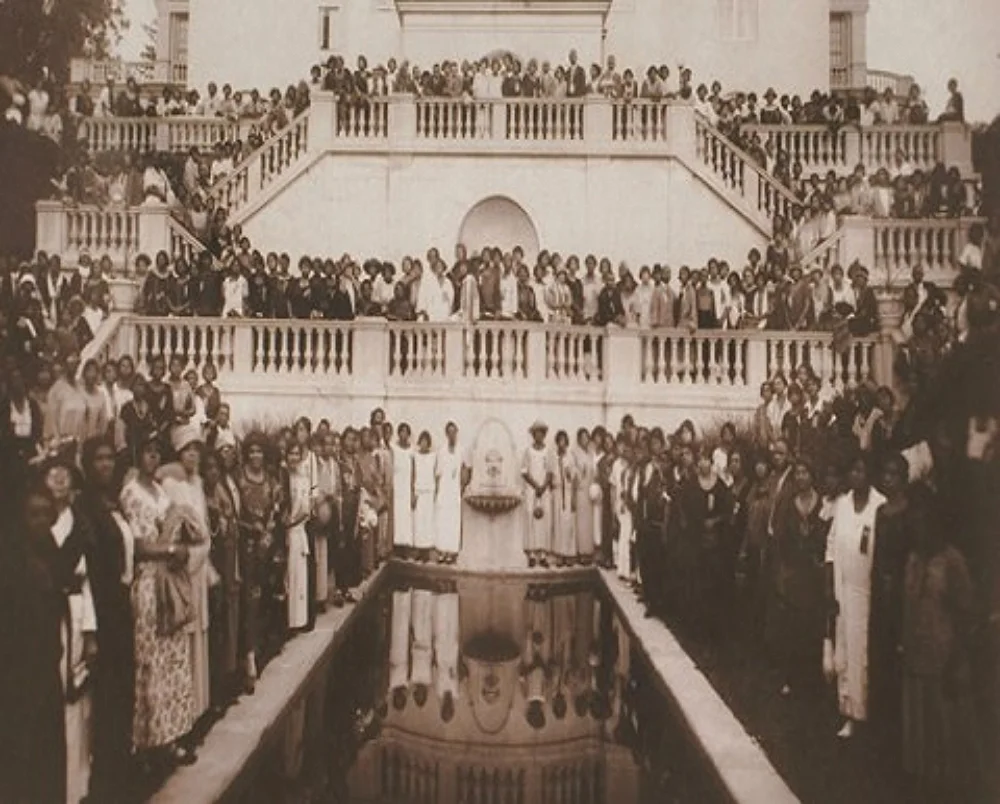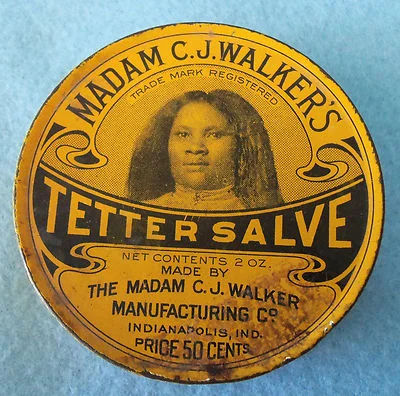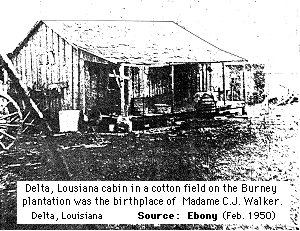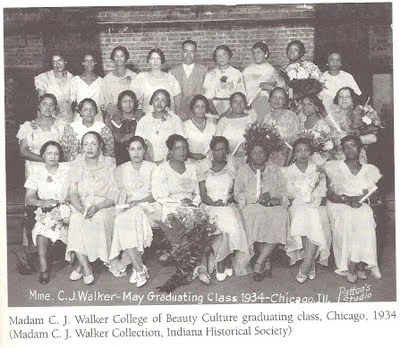Madam C. J. Walker. Entrepreneur. Employer. First American Female Self-Made Millionaire.
Madam C.J. Walker (nee Sarah Breedlove) was born December 23, 1867. Sarah's parents were slaves up until the year before her birth, the year of Emancipation. However their lives changed only slightly as they still worked on the same land and performed the same tasks they always had as slaves. Sarah was also the youngest, so all of her 5 older siblings had been born into slavery. Like many born at the cusp of Freedom, prospects were incredibly bleak. By age 6, both of her parents had died. Little Sarah would live with her sister and brother-in-law who was abusive towards her. By 14, Sarah was married, by 17 had her first and only child, A'Lelia, and by 20 was a widow.
Sarah needed a new, supportive home, and a job. With three brothers in St. Louis, she and her baby packed up and headed there too. Sarah managed to secure a job for herself washing laundry, for $1.25 a day. Securing a better paying job was rare back then for black women. However Sarah kept going with the focus of saving enough money to send her little daughter to school, and she did.
In her late 30's, Sarah's hair began to fall out. Bathing in the 1800's was not as frequent as it is today due to housing, plumbing and resources. If it was hard to take a bath, it was much harder to wash one's hair. For the poor with very poor diets and long, stressful and physical work days, hair often out. Shampoo or hair care lines didn't exist like they do today. Back then, home brewed chemicals and potions were the norm when one did get a chance to wash their hair. However, a consumer goods industry was burgeoning. By 1904 Sarah went to work for a pioneer, Annie Turnbo Malone, selling her hair care products. Eventually, Sarah realized she could have her own line of hair care products.
Sarah wed again to Charles Joseph Walker and was working on her own line of products. She and her husband decided upon the name Madam C.J. Walker for her new beauty product line, her company and for herself. In the early 1900s, whites generally did not address blacks by last name, which is of course insulting. "Madam" was a way to create and spread dignity that would be both seen and spoken.
By 1907, Madam C.J. Walker and her husband were going door to door around the south for a year and a half selling the hair care products, as well as training women on her "Walker Method" of washing and general care. Back then, about 90% of blacks in America lived in the South making the community there key. The black community was of course disadvantaged, but it was strong. Madam's corporate model was influenced by the network of the church, and the concept of staying together. The National Association of Colored Women inspired her as well, so she structured her sales force into state and local teams. Despite her burgeoning wealth, she was not able to stay in hotels since she was black. Staying in the homes of local ministers, prominent doctors and other local leaders positively embedded her in the communities she traveled in, and helped grow her network.
By 1910 her business was thriving, she moved to Indianapolis, set up her new headquarters, her factory, and beauty school where she would train her sales staff. There was a central message of pride, respect and empowerment in the training, as her sales force went out into communities and homes, this message was spread over and over.
While Madam enjoyed the good life, she didn't want the money to just be a millionaire for her own pleasure, but for the good she could do with it. Below are just a few amazing things she did do with it:
· Madam employed a team of 25,000 black women at the turn of the 1900's, who would have otherwise only been able to earn about $2 per week in domestic work due to the jobs open to black women back then. But Madam C.J. Walker paid $25 per week to her team. This absolutely transformed the earning power and comfort of black families all across the country, and of course, those wanting black labor would now have to start paying more to entice these workers. An estimated 40,000 black women in total worked for Madam C.J. Walker over the years. Paying a fair wage did not hurt success.
· Rewards to her sales teams were based not only on their sales, but on their philanthropic and educational work as well - it was a united definition of success new to businesses in that era.
· Madam personally sent 6 students a year to Tuskegee institute in Hampton, VA.
· Madam also personally financed the education of blacks throughout various Northern and Southern colleges, in today's dollars her contributions to these students would be $130,000 in annual scholarships.
· Home ownership is crucial to wealth development, and blacks could not get mortgages. So, Madam C.J. Walker personally financed the homes for many black families, allowing them to pay back "when and what they could".
· For her homes in Harlem and along the mansion on the Hudson River, she, always supporting fellow blacks, employed Architect Vertner Tandy, the first licensed Black architect in NY State. The home he created for her up the Hudson is now a National Landmark.
· 2/3 of her estate and wealth were donated to black specific foundations and charities upon her death, the other 1/3 stayed in her family.
What a life. Her obituary by the New York Times in 1919 remarked that her fortune was amassed in twelve short years, staring from just little over a dollar a day. That kind of spirit, focus and desire to create a fair business structure benefitting her own people is even more telling based on the incredible success she achieved. Madam was one of a kind, and remains a lesson to us all today.
Favorite quote: "I am a woman that came from the cotton fields of the South. I was promoted to wash tub. Then I was promoted to cook kitchen. I promoted myself into the business of manufacturing."









